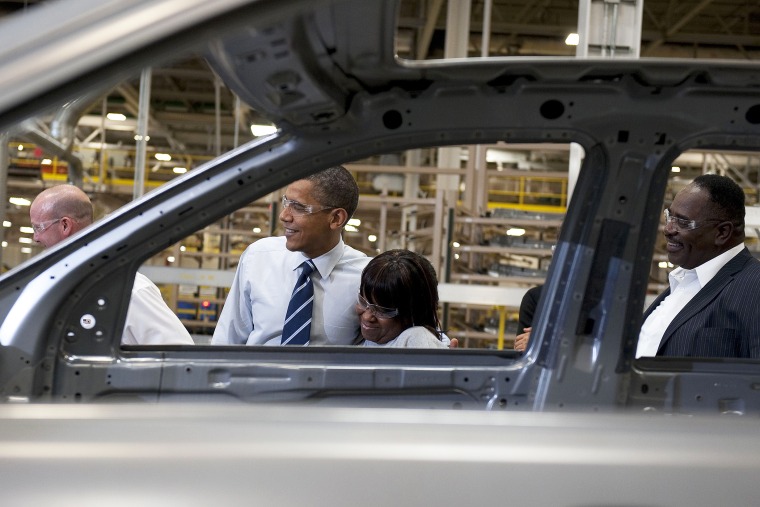Drivers in the United States bought more cars last year than ever before, a staggering turnaround for an auto industry fighting for its life half a decade ago, as low gas prices and a strengthening economy marked a banner year on American roads. [...] Car buyers last year were energized by several economic sparks: the improving wages and confidence of a more robust job market; easy credit and cheap gas; and the pent-up demand of a driving public whose cars, on average, are more than 11 years old. And the explosive results could prove more than a blip, with some analysts projecting that a strong economy could yield another car-lot record in 2016. Last year's estimated $437 billion in car sales capped a six-year growth streak, the industry's first since World War II.
White House has reason to celebrate auto-industry data
Given how hilariously wrong Republicans were, and how effective Obama's policy was, can you blame the White House for celebrating new auto-industry successes?

Reporters attending White House Press Secretary Josh Earnest's press briefing today were treated to a fairly detailed slide show devoted to a specific topic: the health of the American auto industry.
And under the circumstances, it's awfully tough to blame the Obama administration for wanting to take a victory lap. Consider this Washington Post report from yesterday:
Given the number of Americans employed, directly and indirectly, in the auto industry, and degree to which this represents the backbone of the nation's manufacturing sector, these figures have to be heartening to anyone rooting for the U.S. economy.
But there is, of course, a political angle to this that also matters.
It doesn't come up much in political conversations anymore, but in 2009, the entire industry was on the verge of collapse. At the time, the Great Recession was already ravaging the economy and the jobs crisis was intensifying, and without an effective plan, hundreds of thousands of Americans -- employees of storied American companies -- were headed for the unemployment line.
President Obama took a gamble on an unpopular plan, which fortunately worked beautifully.
In the interest of accountability and credibility, we can look back at Republican predictions from 2009 -- the GOP was absolutely convinced Obama's plan would fail miserably -- and appreciate the simple fact that they were completely, hilariously wrong.
But even looking past the Republicans' economic failures from the recent past, we can also use this story to look forward. In 2015, Marco Rubio, Jeb Bush, Ted Cruz, and Donald Trump all voiced opposition to the White House's rescue policy from 2009.
Yes, they know Obama's approach worked. No, they don't care.
As we joked about over the summer, sure Obama rescued the American auto industry. And sure, he saved the hundreds of thousands of jobs. And sure, the entire White House policy demonstrates the importance of competent government working to save a struggling private sector from collapse.
But that doesn't mean Republicans can endorse a policy they find ideologically offensive. An old joke from academia comes to mind: the policy works in practice, but does it work in theory?